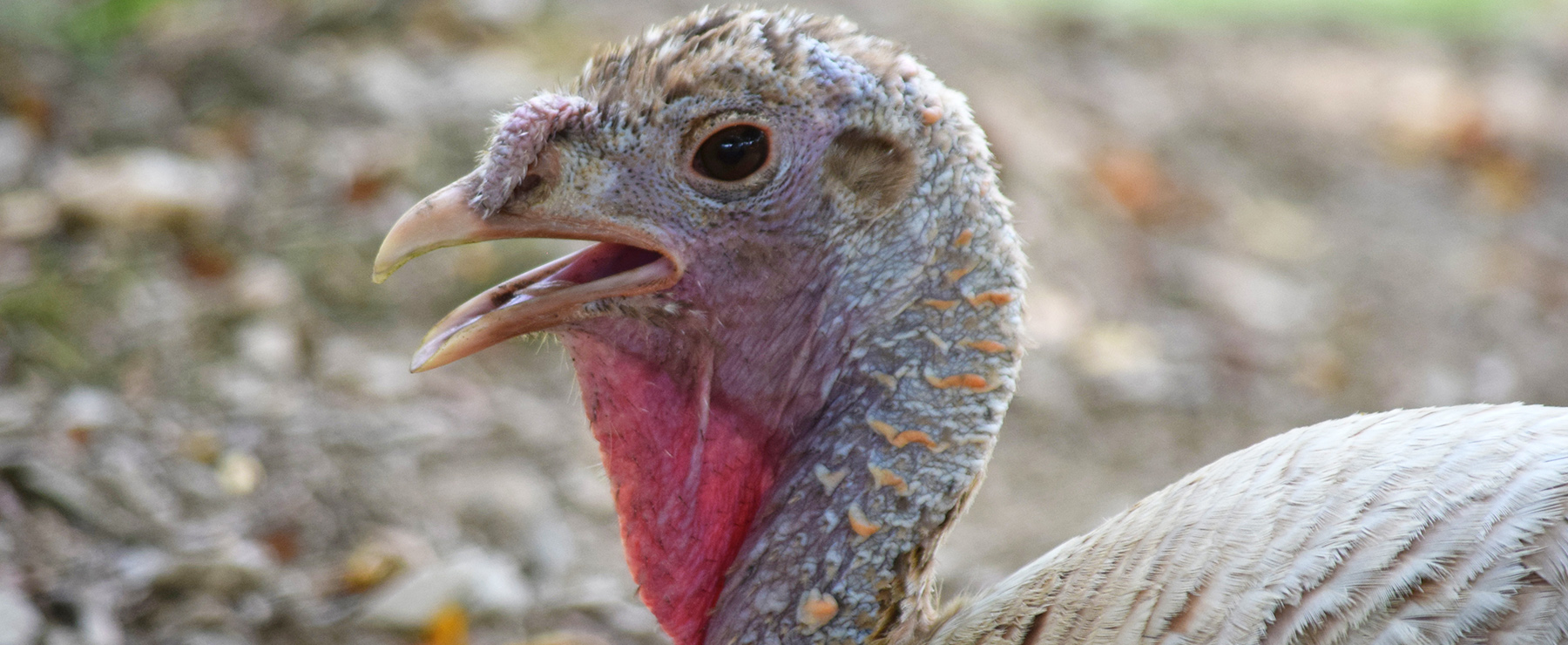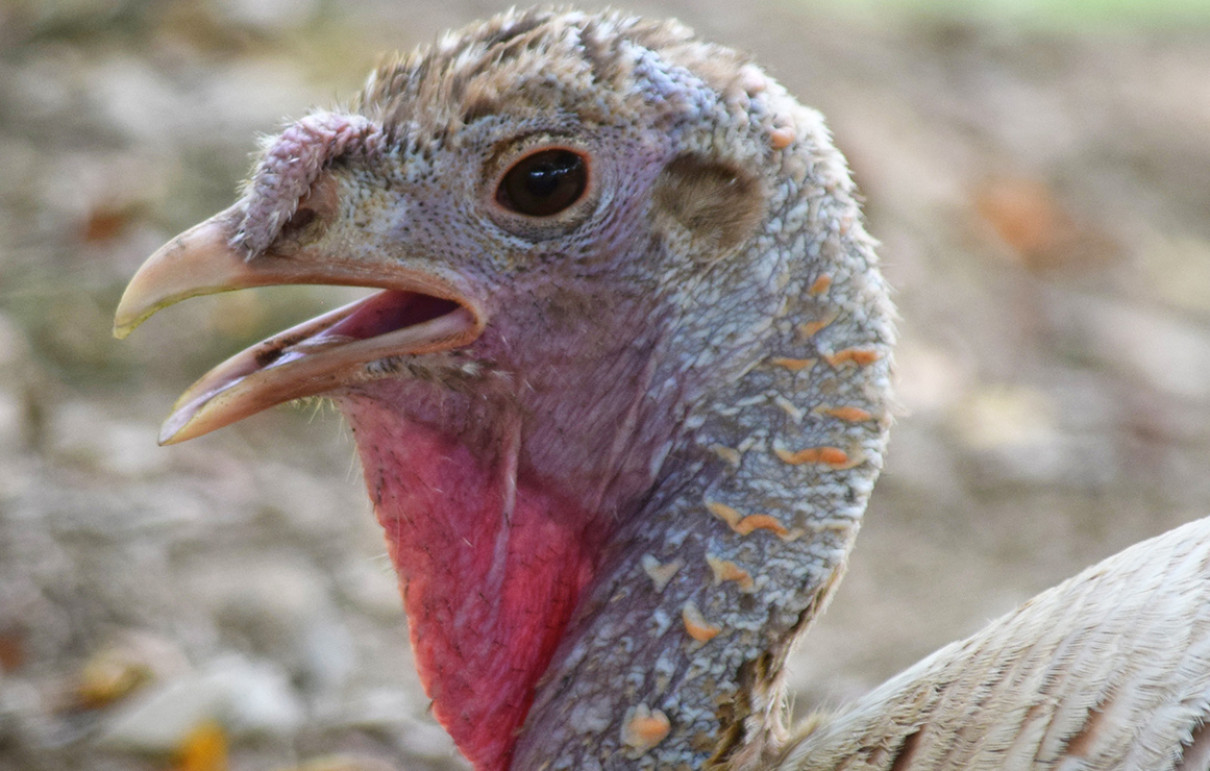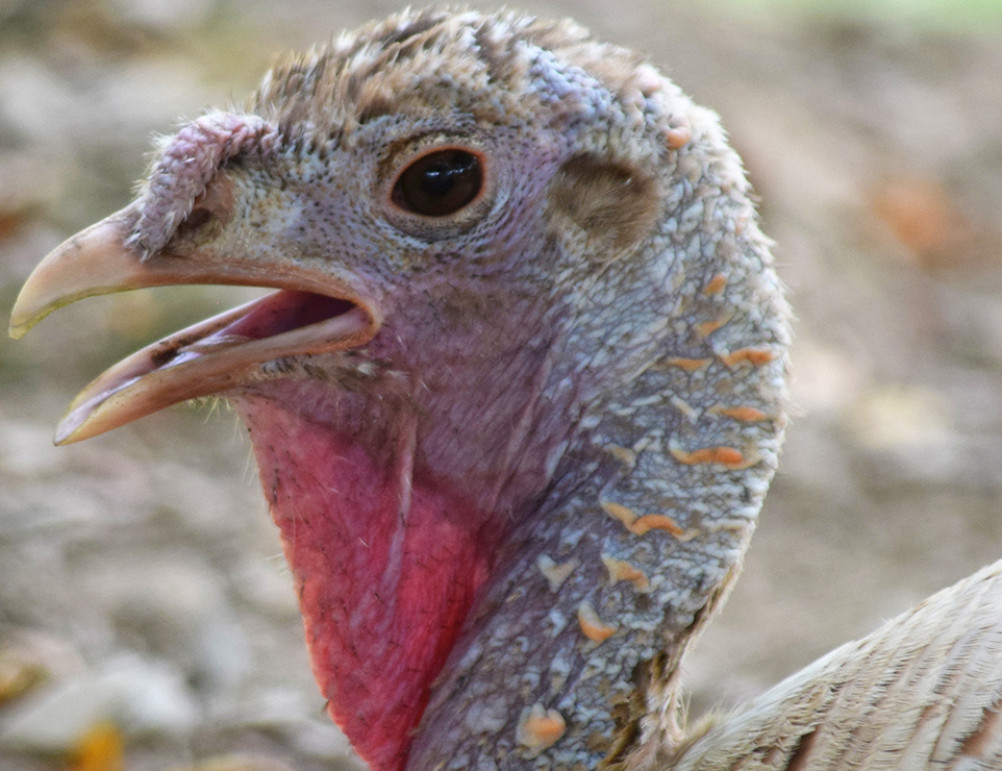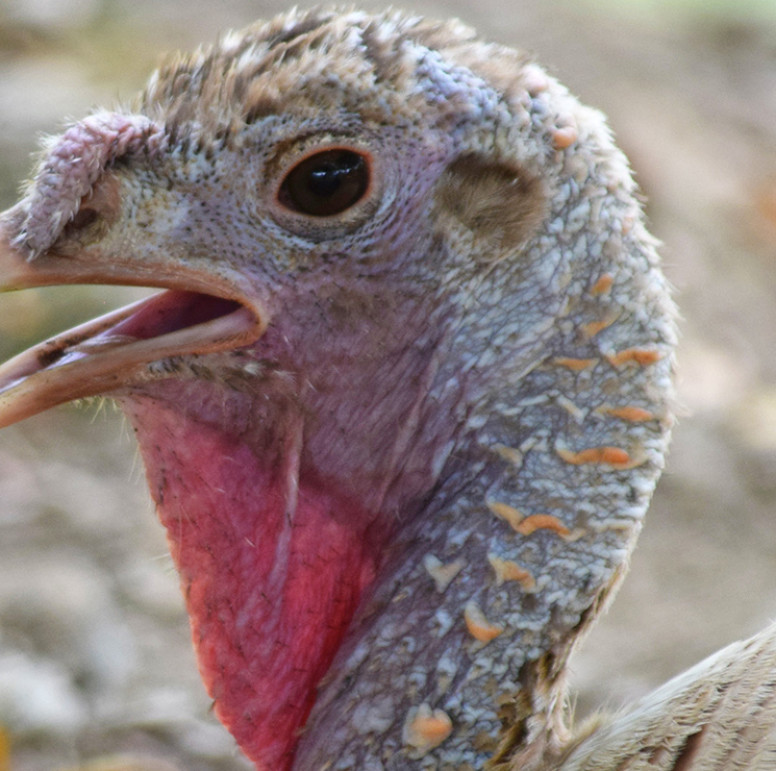STATUSLeast Concern
COMMON NAME (SCIENTIFIC NAME)Meleagris gallopavo domestic
DIETSeeds, grain, berries, wild grapes, crabapples, succulents, roots, and bulbs, snails, insects
RANGENative to the Americas, but now globally domesticated
HABITATPastures, swamps, and woodlands






